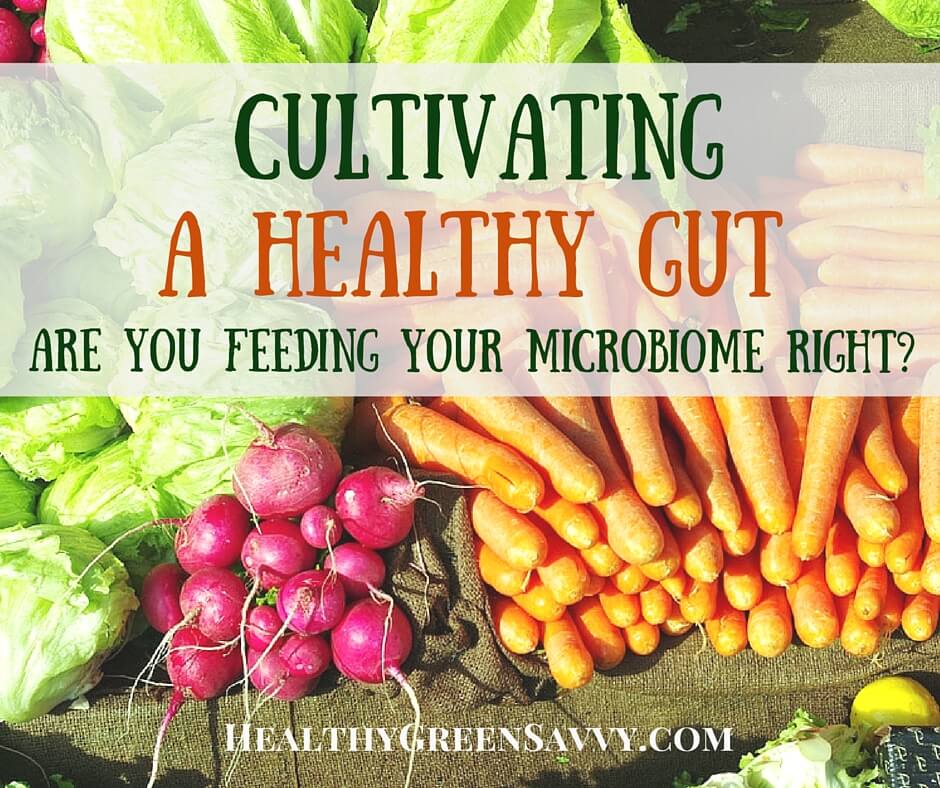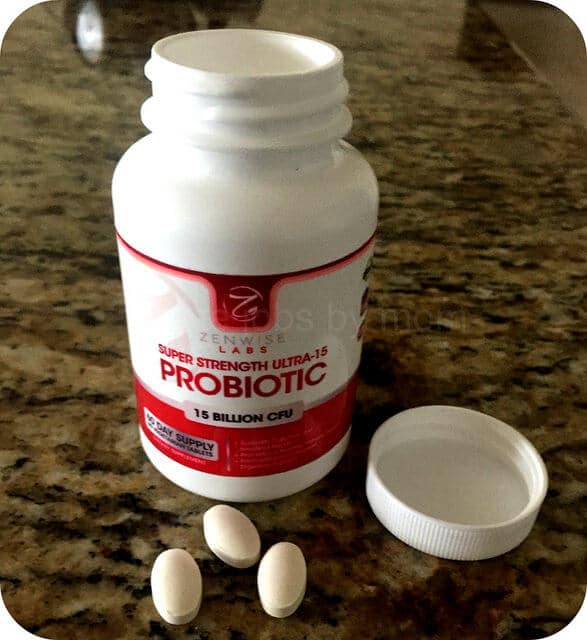How to get a healthy gut? The latest research on the human microbiome — the trillions of bacteria that live on and in our bodies — suggests that these little critters do a lot more to keep us healthy than we ever imagined. Are you feeding your gut what it needs to keep you healthy?

We don’t give them much thought, but our microbes can have a powerful influence on our health, for better or worse. Recent research has begun to link the makeup of our microbiomes to a slew of health outcomes from obesity and related chronic diseases to depression. While plenty of research remains to be done, scientists now believe that these microscopic residents of our intestinal tracts may control how we convert food to energy, our mood, how our immune systems function (or misfire), and what diseases we get or evade.
Biologist Rob Knight, co-founder of the American Gut Project and co-author of a new book, Follow Your Gut: The Enormous Impact of Tiny Microbes, explains: “Researchers have linked microbes to all kinds of diseases we didn’t know they were involved in, from obesity to arthritis to depression, over the past few years.” Knight notes that this research is still in the early stages, that “we are just starting to understand how to guide what actions you should take to improve your microbes to improve health.”

While we can’t yet say for certain that eating A or B will lead to outcome Y or Z, research to date points to some basic guidelines that promote gut health. In a nutshell, the Standard American Diet (with the fitting acronym SAD), tends to decrease the diversity of our gut. Why is that a problem? Different microbes do different jobs, creating nutrients we need to thrive or neurotransmitters that affect our mood. If we’re lacking in certain kinds of microbes, we may find ourselves deficient in important compounds that help us ward off infection or manage stress. According to Robin Chutkan, MD, author of The Microbiome Solution, “There is a direct connection between species diversity in the gut and inflammation, allergy, obesity, autoimmune diseases and likely several other conditions.”
Research suggests that the American diet’s overemphasis of meat and processed food has led to imbalances in our microbial communities that may contribute to the “epidemics” of obesity and concomitant health conditions.
What to feed a healthy gut?

If you want a healthier diversity of microbes in your gut, you need to feed your resident bugs things they like. If your diet currently consists mainly of burgers, white bread, and fruit loops, I have some bad news for you. Nope, not the good critters’ favorite eats.
Knight says the research thus far suggests that we should avoid white flour, sugar, artificial additives and highly-processed food in favor of minimally-processed “real food” such as whole grains, colorful fruits and veggies, and some more surprising choices like butter instead of margarine. Eating a diverse array of vegetables, fruits, and grains looks like it’s important, too. Sticking with nothing but carrots and romaine lettuce is less likely to please your gut bugs than varying your choices pretty widely. But if those are the only vegetables you like, eating them often is far better than not eating veggies at all!
Can’t I just take a supplement?

Unfortunately, it looks like you can’t make up for a poor diet with a pill. While this attention to gut health has led to a rise in sales of probiotic supplements, according to Chutkan, the evidence isn’t there that supplements help populate the gut with good bugs. She cautions, “We can’t just replace lost bacteria with store bought ones.” Chutkan worries that a probiotic “lulls people into a false sense of security that they’re actually doing something, when they really should be focusing on the food.”
Some studies have suggested that certain strains of probiotics may help with particular conditions, but lots more research needs to be conducted before we can treat ailments using probiotics with certainty. Plus, no one’s checking that those pills contain what they say, so you may be wasting your money.
Some probiotic-containing foods could help if you work them into your otherwise gut-healthy diet. The “live cultures” found in fermented foods like pickles, sauerkraut and kefir may help repopulate a gut that’s been hit with a round of antibiotics or suffered too long from poor food choices. But far more important than probiotics, it seems, are the fiber-rich foods called prebiotics. According to Chutkan, “Poorly digested plant fiber is the food that helps, not sugar-filled yogurts and other dairy products that may taste good, but don’t have enough live bacteria to really make a difference.” Instead, she says, focus on “fibrous plants like oats, asparagus, leeks, artichokes, lentils that are great for the microbiome” and consider adding kimchee, sauerkraut and non-dairy kefir for extra measure.
Even if we’re not completely certain how all these complex processes affect disease and health, findings thus far support the plant-based, real food diet that nutritionists generally agree is better for us anyway than a processed, meat-centric one. Bonus: A plant-based whole foods diet is also far better for the planet. Check out these great recipes using zucchini, pumpkin, beans, and spaghetti squash to get more veggies into your diet. Or try this tasty vegan chili on a cool fall night.
Some of your microbes’ favorite eats — eat more for a healthy gut:
♦ oats and whole grains
♦ lentils and beans
♦ leeks (especially the green part)
♦ onions
♦ celery
♦ asparagus
♦ artichokes
♦ sunchoke or Jerusalem artichoke (not really an artichoke, but an easy-to-grow perennial sunflower with an edible root)

…and some of their least favorite:
♦ artificial colors, sweeteners, and flavorings
♦ refined flour and sugar
♦ meat
♦ dairy
The incredible folk at Ultimate Bundles have put together some amazing resources to help you improve the health of your gut! Check out this great deal — 25 e-books and courses worth nearly $700 for only $47! Over 800 recipes and 44 videos about everything from the GAPS diet to healing candida and getting started with grain-free cooking. Find out more here.
Need some inspiration to start eating more plants? Here are some great places to start:
Find money-saving, plant-based recipes plus strategies for making the healthiest food fit your budget in my FREE guide Affordable Healthy Food. Get your copy here.
Pin to save this post for later!

Some interesting recent articles on microbiome research:
Gretel Schueller, “How Good Gut Bacteria Could Transform Your Health” (Eating Well)
Michael Pollan, “Some of My Best Friends Are Germs” (New York Times)
Caitriona M. Guinane and Paul D. Cotter, “Role of the gut microbiota in health and chronic gastrointestinal disease: understanding a hidden metabolic organ” (Therapeutic Advances in Gastroenterology)
Zhenjiang Xu and Rob Knight, “Dietary effects on human gut microbiome diversity” (British Journal of Nutrition)
Disclaimer: I’m a healthy food enthusiast, not a microbiologist or medical professional. Content on this website is intended for informational (maybe inspirational!) purposes only and is not meant to provide personalized medical advice. I draw on numerous health sources, a few of which you will find in the reference list above. Please consult them for more information and a licensed professional for personalized recommendations.
Photo credits: AJC ajcann.wordpress.com, Le living and co, www.homejobsbymom.com, Liz West, Pawel Pacholec via Flickr
Disclosure: This page may contain affiliate links, which help to pay for this site. If you make a purchase using one of these links, I may earn a small commission at no additional cost to you. I have not been paid to promote these products, and all opinions are strictly my own. Thanks for supporting HealthyGreenSavvy!
Original article and pictures take www.healthygreensavvy.com site
Комментариев нет:
Отправить комментарий